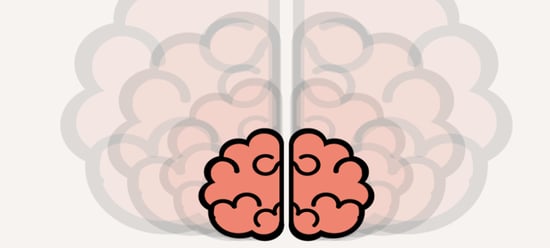
STEM Education Resources Teachers Actually Need in 2026
STEM brings together science, technology, engineering, and math in a connected way.
ALI Staff | Published September 30, 2022
Do you ever wonder why some students embrace making mistakes while others shy away from them?
The answer often lies in their mindset – specifically, whether they have a growth or fixed mindset.
This distinction isn't just about confidence; it's about a deep-seated belief that abilities and intelligence can be developed with effort and perseverance.
In this blog, we'll dissect what a growth mindset truly means, how it stands in stark contrast to a fixed mindset, and the transformative effects it can have on students' approach to learning and overcoming challenges.

A growth mindset is the idea that students' abilities can grow with time and effort.
In the classroom, it means understanding that intelligence isn't something you're born with and stays the same. Instead, it's like a muscle that gets stronger the more you use it.
Students with a growth mindset see challenges as chances to learn, not as dead ends. They know that making mistakes is part of learning and getting better.
This way of thinking helps students to keep trying, even when work gets tough because they believe their hard work will pay off in the end.
It's about seeing the power in themselves to improve and succeed through persistence and the right strategies.
Understanding the difference between a fixed mindset and a growth mindset can change how we approach teaching and learning.
With a fixed mindset, students believe their intelligence and talents are just given traits that they can't do much about. They might avoid challenges, feeling that not being able to do something reflects on their abilities.
On the other hand, students with a growth mindset see their abilities as something that can be developed through hard work and dedication. They meet challenges head-on, knowing that these are opportunities to improve.
They also understand that effort is part of the process and that making mistakes is a natural step in learning.
As teachers, it's important to help students see the benefits of a growth mindset.
We can show them that learning is not just about getting something right but about the process of getting there.
Encouraging this perspective in the classroom helps students to keep pushing forward, even when things seem tough, and reinforces the idea that they can grow and succeed through perseverance and practice.
A growth mindset can transform the way students approach learning and their education as a whole.
It's the belief that skills and intelligence can develop with time and practice.
Educators can encourage this mindset, showing learners that their abilities aren't fixed and that they can improve with effort.
It's about helping students see challenges as stepping stones to mastery and understanding that effort is a key part of the journey to success.
In the classroom, this mindset creates an environment where students are eager to try new things, knowing that each effort is a chance to grow.
They learn that setbacks are not a reflection of their potential but opportunities to learn and evolve.
This approach builds resilient learners who are prepared to tackle the complex problems they'll face in their academic and personal lives.
Encouraging a growth mindset in the classroom is a powerful approach, but it's not without its hurdles.
Sometimes, students, and even educators, might hold onto the old idea that intelligence is set in stone.
This belief can make them shy away from challenging tasks or feel discouraged by setbacks.
Breaking through this mindset means consistently showing that learning and intelligence can grow with time, effort, and the right strategies.
It's not just about offering praise; it's about giving constructive feedback, setting just-right challenges, and helping students learn from their mistakes.
Changing the way we think about learning and intelligence isn't something that happens overnight. It's a gradual shift that requires patience and persistence.
Despite these challenges, the journey toward a growth mindset is worth it. It sets students on a path where they're ready to tackle challenges, learn from their experiences, and keep growing throughout their lives.
Facing these challenges head-on, educators can build a classroom where every student believes in their potential to learn and grow.
Teachers can nurture the growth mindset of their students by intentionally implementing strategies in their classrooms that change students’ approach to learning.
When students understand that struggle and effort are part of learning, they become more persistent and motivated.
It's these classroom experiences that help instill a growth mindset, empowering students to see beyond immediate challenges and focus on long-term development.
Highlight the importance of the journey, not just the destination.
Recognize and praise students when they show persistence in challenging tasks.
This reinforces the idea that the effort they put into their work is just as important as the final outcome.
Facilitate activities that allow students to reflect on their learning experiences.
Encourage them to think about what they did well and what they could do differently next time.
This self-reflection fosters a deeper understanding of their learning process and growth.
Teach students that setbacks are a normal part of learning.
Share stories of successful people who have failed and grown from the experience.
This helps to demystify failure and reframe it as a stepping stone to success.
Introduce language in the classroom that reflects growth mindset principles.
Use phrases like "not yet," "let's try another strategy," or "what can we learn from this?" to help build students' growth mindset vocabulary.
Lead by example. Share your own learning goals and the steps you're taking to achieve them.
When you encounter obstacles, demonstrate a growth mindset by discussing your thought process and resilience openly with your students.
By integrating these practices into daily routines, educators can support and inspire students to adopt a growth mindset, laying the foundation for a lifelong love of learning and resilience in the face of challenges.
Math problem-solving skills are crucial beyond the classroom.
They equip students to handle real-life situations where answers aren't straightforward.
Educators who focus on these skills are preparing their students not just for tests but for life's unpredictable problems.
By applying math to daily challenges, students learn to think critically and solve issues with confidence.
It's preparation for a world that values innovative solutions and thoughtful decision-making.

STEM brings together science, technology, engineering, and math in a connected way.

Mathematics can be a challenging subject for many students, requiring schools to have effective strategies in place to...

The news headlines are daunting. Math scores are down. School districts are scrambling to turn things around. And...